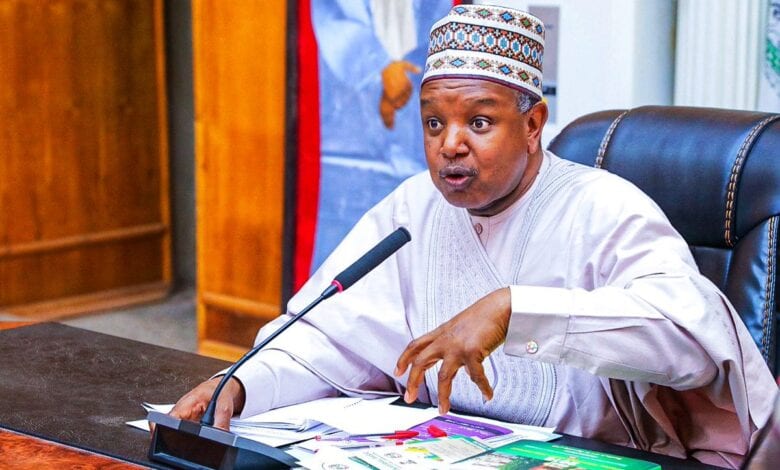- Atiku Bagudu asserts that President Tinubu’s economic policies successfully revitalise Nigeria’s economy, despite challenges faced in the past year
- The Minister emphasizes the importance of international cooperation and strategic planning to achieve the objectives outlined in the Renewed Hope Agenda
The Minister of Budget and Economic Planning, Senator Atiku Bagudu, has affirmed that President Bola Tinubu’s Renewed Hope economic strategy is making positive strides in revitalizing Nigeria’s economy. Bagudu made these remarks on Wednesday during the National Economic Dialogue 2024, organized by the Nigerian Economic Summit Group (NESG) in Abuja, with the theme Nigeria’s Economic Future: 25 Years of Democracy and Beyond.
In his speech, Bagudu acknowledged that while Nigeria has not made significant progress in the last 25 years, the current administration is committed to a clear strategy for overcoming economic challenges. He emphasized that the strategy is already yielding results despite the tough choices involved.
“We are under no illusion that it will involve tough choices. That is why we are looking for resources that we believe can compensate for those tough choices at every turn,” Bagudu said.
He highlighted President Tinubu’s efforts to create additional ministries intended to spur economic growth. Bagudu reiterated the administration’s commitment to doing more, improving outcomes, and acting swiftly to achieve economic objectives.
The Minister of Finance and Coordinating Minister of the Economy, Mr. Wale Edun, also spoke at the event, noting that while Nigeria has faced challenges over 25 years of democracy, the nation must continue to strive for improvement. Edun emphasized that democracy, despite its imperfections, remains the best system for organizing society. He pointed out that inflation rates are beginning to decline, and the administration is focused on maintaining this downward trend, particularly in reducing food inflation and ensuring more affordable food for the population.
Olaniyi Yusuf, Chairman of the NESG, reflected on Nigeria’s significant political, social, and economic transformations over the past 25 years. He acknowledged the strides made in sectors such as telecommunications, agriculture, and services, but also noted the persistent challenges related to policy inconsistencies, governance deficits, and economic vulnerabilities.
Yusuf pointed out that businesses and entrepreneurs struggle with rising costs, and citizens face increasing living expenses. He highlighted that addressing these challenges requires more than just policy adjustments; it demands a concerted effort to tackle the systemic issues that have hindered Nigeria’s progress.
“Poverty, unemployment, insecurity, and corruption are issues that continue to hinder our progress. The lessons we have learned from these challenges are clear; sustainable economic growth requires more than just policy changes. It demands a concerted effort to address the underlying systemic issues that have held us back,” Yusuf concluded.
